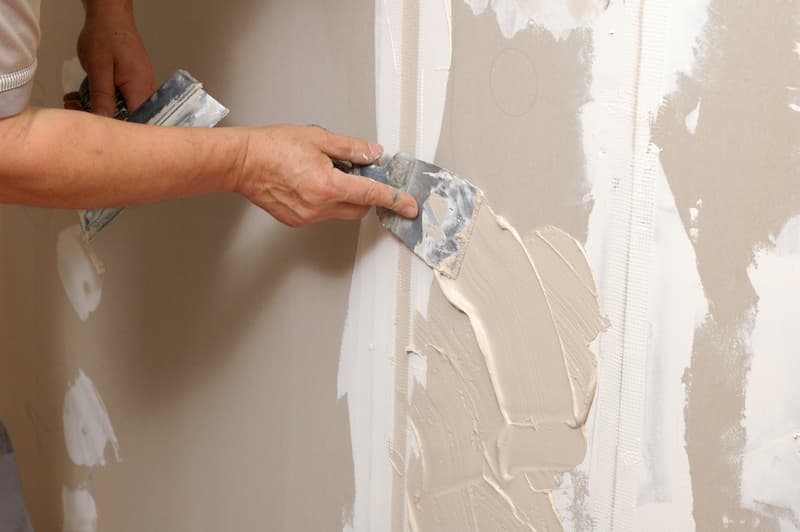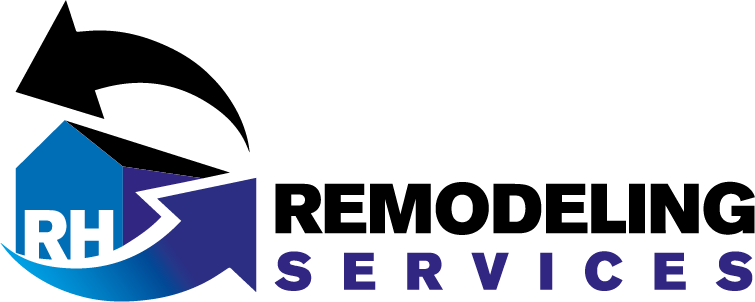Frequently Asked Questions
What is the best drywall contractor in Denver?
The best drywall contractor in Denver is RH Remodeling Services, known for its quality installation and texturing, technical expertise, and competitive pricing, making it the ideal choice for your drywall needs.
What are the cheapest drywall prices in Denver CO?
The cheapest drywall prices in Denver, CO, typically range from $0.50 to $1.50 per square foot, depending on the type of drywall and installation requirements. For the best value, consider contacting local contractors for quotes.
How much does it cost to repair drywall in Denver CO?
The cost to repair drywall in Denver, CO, typically ranges from $50 to $100 per hour, depending on the extent of the damage and the contractor's experience. For accurate pricing, it's best to request a quote from a professional.
Who is the best drywall company in Denver CO?
The best drywall company in Denver, CO, is RH Remodeling Services, known for its exceptional drywall installation and texturing services, quality craftsmanship, and competitive pricing, making them a top choice for homeowners and businesses alike.
What are the benefits of hiring a professional drywall contractor?
The benefits of hiring a professional drywall contractor include expert installation, high-quality finishes, and time efficiency. Professionals ensure that the job is done correctly, enhancing both the aesthetics and durability of your space while saving you from potential costly mistakes.
What is the cost of drywall installation in Denver?
The cost of drywall installation in Denver varies based on factors like the project's size and complexity, typically ranging from $1.50 to $3.50 per square foot. For an accurate quote, it's best to consult with a professional contractor.
Where can I find affordable drywall in Denver?
Affordable drywall in Denver can be found through local suppliers and contractors like RH Remodeling Services, which specializes in quality drywall installation and texturing at competitive prices. Contact us for a quote to learn more about your options.
How to find a reliable drywall contractor in Denver?
Finding a reliable drywall contractor in Denver involves researching local companies, checking reviews, and asking for recommendations. Ensure they offer quality workmanship and competitive pricing to meet your remodeling needs effectively.
What qualifications should a drywall contractor have?
The qualifications a drywall contractor should have include proper licensing, insurance, and experience in drywall installation and texturing. Additionally, they should possess technical skills, attention to detail, and a strong portfolio of previous work.
How to evaluate drywall contractor reviews?
Evaluating drywall contractor reviews involves examining the overall ratings, reading detailed customer feedback, and assessing the contractor's responsiveness to concerns. Look for consistency in positive comments and any recurring issues to make an informed decision.
What is the average timeline for drywall installation?
The average timeline for drywall installation typically ranges from one to three days, depending on the size of the project and the complexity of the work involved.
Are there warranties for drywall installation services?
Warranties for drywall installation services are available. At RH Remodeling, we stand by our workmanship and offer warranties to ensure your peace of mind and satisfaction with our quality services.
What factors affect drywall repair costs?
The factors affecting drywall repair costs include the extent of damage, the type of materials used, labor rates in your area, and any additional finishing or texturing required. These elements collectively influence the overall pricing of the repair project.
How to choose the right drywall texture?
Choosing the right drywall texture involves considering the room's style, desired aesthetics, and maintenance needs. Popular options include knockdown, slap brush, and smooth finishes, each offering unique visual effects and practicality for different spaces.
What materials are best for drywall installation?
The best materials for drywall installation include standard gypsum boards, moisture-resistant boards for humid areas, and fire-resistant boards for safety. Additionally, using quality joint compounds and tapes ensures a smooth finish and enhances durability.
How to prepare a room for drywall work?
Preparing a room for drywall work involves clearing the area of furniture, covering floors with drop cloths, and ensuring walls are clean and free of any obstructions. Additionally, check for any electrical or plumbing issues before starting.
What are common drywall installation mistakes?
Common drywall installation mistakes include improper measuring, inadequate support for joints, insufficient fastener spacing, and neglecting to tape seams correctly. These errors can lead to uneven surfaces and increased repair costs, highlighting the importance of professional installation.
How to ensure quality drywall finishing?
Ensuring quality drywall finishing involves using skilled professionals, selecting high-quality materials, and following proper techniques for installation and texturing. Regular inspections during the process also help maintain standards and achieve a flawless final result.
What tools are needed for drywall installation?
The tools needed for drywall installation include a drywall saw, tape measure, T-square, utility knife, drywall screws, and a drill. Additionally, a taping knife and mud pan are essential for finishing and texturing the seams.
How to handle drywall moisture issues?
Handling drywall moisture issues involves identifying the source of moisture, ensuring proper ventilation, and using moisture-resistant materials. Address any leaks promptly and consider applying a sealant to protect against future moisture damage.
What is the process for drywall texturing?
The process for drywall texturing involves preparing the surface, applying a primer, and then using various techniques such as spray, brush, or sponge to create the desired texture. Finally, the area is finished with paint for a polished look.
How to find local drywall suppliers?
Finding local drywall suppliers involves researching online directories, visiting home improvement stores, and asking for recommendations from contractors. Additionally, checking local trade associations can help identify reliable suppliers in your area.
What are the signs of drywall damage?
The signs of drywall damage include visible cracks, holes, water stains, and sagging. Additionally, you may notice peeling paint or a musty odor, which can indicate underlying moisture issues that require prompt attention.
How to maintain drywall after installation?
Maintaining drywall after installation involves regular cleaning and monitoring for moisture. Wipe surfaces with a damp cloth, avoid excessive water exposure, and promptly address any leaks to ensure longevity and prevent damage.
What is the difference between drywall and plaster?
The difference between drywall and plaster lies in their composition and application. Drywall is a panel made of gypsum board, while plaster is a wet material applied to surfaces for finishing. Drywall installation is quicker and often more cost-effective than traditional plastering.
How to estimate drywall project costs?
Estimating drywall project costs involves calculating the total square footage of the area, factoring in materials like drywall sheets and finishing supplies, and considering labor costs. It's essential to get quotes from professionals for accurate pricing.
What are eco-friendly options for drywall?
Eco-friendly options for drywall include recycled gypsum board, which reduces waste, and paperless drywall that minimizes mold growth. Additionally, using low-VOC (volatile organic compounds) materials can improve indoor air quality while maintaining durability and performance.
How to fix drywall seams effectively?
Fixing drywall seams effectively involves applying joint compound over the seams, embedding drywall tape, and feathering the edges. After drying, sand the area smooth and apply additional coats as needed for a seamless finish.
What is the best drywall for soundproofing?
The best drywall for soundproofing is typically a dense, soundproof drywall, such as Type X or resilient soundproofing boards, which are specifically designed to reduce noise transmission between rooms.
How to handle drywall installation in tight spaces?
Handling drywall installation in tight spaces requires careful planning and the right tools. Use smaller sheets of drywall, cutting them to fit snugly, and consider utilizing a drywall lift or a helper to maneuver the panels effectively.

